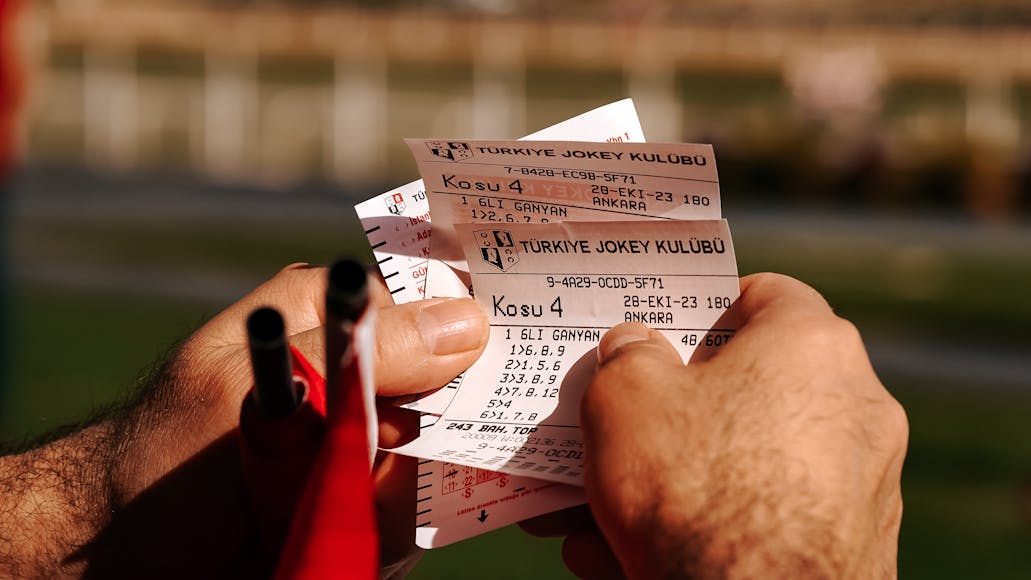
Risk, Reward, Repeat: The Psychology of Smart Betting in 2025
Betting’s betting smarter — and so are bettors
Let’s face it—sports betting isn’t what it used to be. The days of slipping into the bookie’s shop on a Saturday morning with a gut feeling and a tenner are long gone. Today’s bettors are data-driven, boundary-aware, and increasingly betting for the thrill—not the quick fix.
It’s not just about picking a winner—it’s about playing the game behind the game. Whether you’re setting win/loss caps or only betting during live games, a new breed of bettor is emerging: one that treats wagering more like weekend entertainment and less like a rollercoaster of impulse. Tools and platforms like ufabet are part of this shift, giving users control and clarity through streamlined design and accessible features.
So what’s changed? Let’s break down the habits, headspace, and smarter strategies defining the psychology of betting in 2025.
1. Betting as a Budgeted Hobby, Not a Gamble
The biggest shift? Betting is becoming more like budgeting for a dinner out or a streaming subscription. People are setting aside a fixed amount—say, £20 a week—for small, controlled bets. When it’s gone, it’s gone.
This “entertainment budget” approach reduces emotional spending and stops the chase before it even begins. It’s not about hitting the jackpot. It’s about making a Saturday match more exciting without blowing the grocery money.
Key habits smart bettors follow:
-
Pre-set spending caps via wallet features or personal limits
-
No mid-game top-ups (when emotion runs high)
-
Treating wins as a bonus—not income
By viewing betting through the same lens as going to a concert or grabbing pints with friends, the risk feels manageable and the reward stays secondary.
2. The End of “One Big Bet” Thinking
In 2025, it’s not about lumping everything on one match and crossing your fingers. The smarter strategy is micro-betting—smaller, more frequent wagers based on real-time data, form, and flow.
Instead of betting £50 on a final score, users might spread that across:
-
First goal scorer
-
Total corners
-
Whether there’ll be a red card
-
Second-half performance
This approach spreads risk and adds layered engagement throughout the match. You’re watching with sharper eyes, not sweaty palms.
Platforms that support rapid, low-stakes wagers are winning loyalty. They let bettors shift strategy mid-game or cash out before momentum changes—a major psychological shift from the all-or-nothing mindset of old.
3. Live Data, Real Decisions
You’ve probably heard it: “Don’t bet with your heart.” That’s not just good advice—it’s now part of how smart bettors operate.
Modern platforms give users access to live stats, heat maps, player form, and even predictive odds models. This means fans are betting based on expected goals (xG), pass success rates, and lineup changes—not just because they like Arsenal.
Examples of data-informed betting:
-
Avoiding bets when a key striker is benched
-
Watching live momentum shifts before backing a comeback
-
Using AI-based odds calculators to test value
This doesn’t guarantee a win, of course. But it adds logic to the decision. And with logic comes detachment—less emotion, more control.
4. Why Emotional Distance Matters
Here’s a truth few casual bettors talk about: the best bettors are usually the most emotionally detached.
That doesn’t mean they don’t love the game. Quite the opposite. But they know that chasing losses or doubling down in frustration is a fast track to regret. Smart bettors:
-
Log out after a big loss
-
Don’t bet on teams they emotionally support
-
Pause after a string of wins (because overconfidence is a killer)
This emotional regulation is key to staying consistent—and staying in the black.
Think of it like poker pros who fold 80% of the time. It’s not that they don’t want to play. It’s that they know when not to.
5. Mobile-First, Instant-Everything: UX Drives Behavior
Design matters. A lot.
In 2025, platforms that are clunky or slow are being ditched in favor of mobile-first, tap-and-go betting experiences. Bettors don’t want a hundred menu tabs or confusing odds layouts—they want to be able to:
-
Log in
-
Tap a match
-
Place a bet
-
Track it live
-
Withdraw fast
That’s it. Anything more than a 10-second wait feels like friction—and friction kills the fun.
Modern betting apps have adopted cleaner interfaces, simple dashboards, and custom notifications. They also show real-time updates without refreshing—meaning no lag between your instinct and your action.
User-friendly platforms like ufabet gain traction because they respect the bettor’s time and focus. Betting isn’t a side quest—it’s integrated into the fan experience, seamlessly.
6. Responsible Betting Features: Not Just an Add-On
Five years ago, responsible gambling features were buried in settings pages, often more performative than practical. Not anymore.
In 2025, betting platforms are putting controls front and center, making it easy to:
-
Lock in weekly limits
-
Set time-out periods
-
Self-exclude for a week or month
-
Monitor betting patterns
These features are baked into the UX—not guilt-tripped in afterwards. And for smart bettors, they’re tools, not warnings.
What’s changed is the cultural attitude: these aren’t signs of weakness, but of strategy. Just like athletes track hydration or sleep, responsible bettors track impulses.
7. Betting Communities Keep Each Other in Check
One of the most underrated aspects of modern betting is the rise of peer influence—from Reddit threads to Telegram betting groups to Discord chats.
But these aren’t just echo chambers of wild tips. Many are grounded in shared restraint and good sense. People post losses, call out emotional betting, and celebrate smart plays—not just lucky ones.
This shift toward collective discipline is shaping the next generation of sports bettors. If someone boasts about betting their rent money, they’re not a hero—they’re a cautionary tale.
Community culture is changing the narrative: responsible betting is respected betting.
8. Gamification and Its Double-Edged Sword
Let’s be real—gamification isn’t all sunshine. Leaderboards, badges, and streak bonuses can push people toward over-betting just to keep up.
That’s why smart bettors set personal goals instead of chasing platform rewards. It’s okay to enjoy a clean interface and achievement unlocks, but:
-
Never bet just to maintain a streak
-
Don’t treat “VIP” status as a financial goal
-
Watch out for disguised incentives like free bets after losses
Smart bettors engage with awareness. If it feels like a game, make sure you’re still playing by your rules—not the algorithm’s.
9. What New Bettors Can Learn from Seasoned Pros
If you’re just getting started in 2025, the good news is: you’re entering the game at a time when smart strategies are freely shared.
Unlike past years—where everyone guarded their tips—today’s communities, blogs, and podcasts openly discuss:
-
Unit-based betting
-
Bankroll management
-
Using tools like odds comparison trackers
-
Knowing when to walk away
You don’t need a tipster. You need a system. And the best ones are boring, repeatable, and emotionally dull.
Which, ironically, makes betting more fun—because it’s not chaos. It’s controlled risk, wrapped in sport.

Conclusion: Bet Smarter, Not Harder
The psychology of betting in 2025 is clear: the smartest move is the one with limits.
Today’s bettors aren’t chasing big wins—they’re chasing consistency. They use platforms that let them stay in control, lean on data, and tap into communities that value responsibility over recklessness.
If betting’s part of your sports ritual, treat it like any other hobby: with structure, self-awareness, and a built-in off switch. Platforms like ufabet are simply tools—the mindset is what makes or breaks the outcome.
So whether you’re laying £5 on a Saturday or tracking corner stats mid-match, remember the formula: Risk. Reward. Repeat. But only if the risk is worth the routine.

















